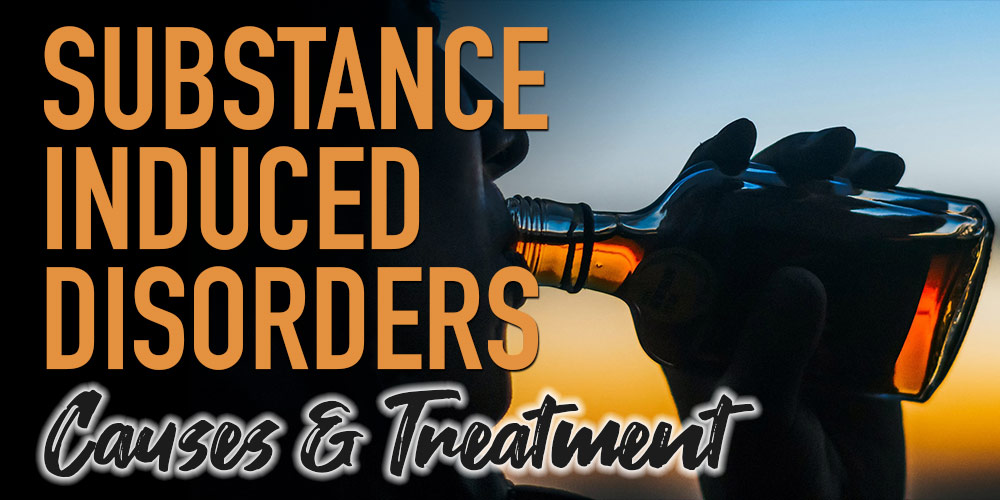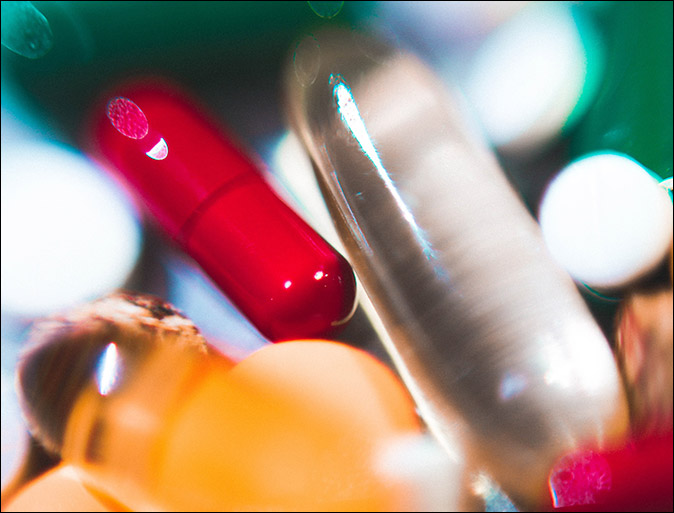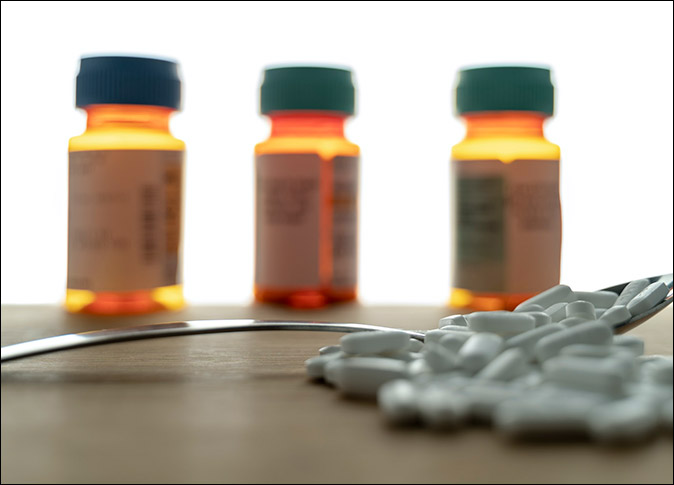
The consequences of alcohol and drug abuse can create problems with work, school, and personal relationships. Even for people without a history of addiction, drugs and alcohol can cause mental and physical health issues known as Substance Induced Disorders (SIDs).
These issues can severely impair a person’s ability to live a normal life. Fortunately, most substance induced disorders symptoms are treatable and they tend to subside once alcohol and drugs are stopped.
Identifying substance use as the cause of the disorders is the first approach to finding relief from the symptoms.
What are Substance Induced Disorders (SIDs)?
Unlike a dual diagnosis, which is the presence of a substance use addiction alongside an existing mental illness, like depression or anxiety, a substance-induced disorder is brought on by using drugs and alcohol.
In other words, the particular illness caused by substance abuse was not present before a person started using drugs or alcohol. Using the substance “induced” the disorder to appear.
It should be noted that there may be other types of mental health disorders a person has been coping with prior to their substance abuse.
In fact, it’s not uncommon for people suffering from an undiagnosed mental health issue, such as post-traumatic stress disorder (PTSD), bipolar disorder, personality disorders, and others to self-medicate their symptoms with drugs and alcohol in order to better cope with them.
The distinction with substance induced disorders though, is that the health condition caused by substance use will generally improve after a certain period of sobriety or abstaining from using them.

11 Types of Substance Induced Disorders
According to the Diagnostic and Statistical Manual of Mental Health Disorders (DSM-5), published by the American Psychiatric Association, there are 11 different types of substance-induced disorders.
The severity of symptoms caused by the wide range of substance-induced disorders will vary depending on each individual’s personal history with substance use or abuse.
In other words, a person with high functioning alcoholism who is struggling with an SID might be able to go about their daily life, while another person with the same substance induced disorder may find it impossible to handle even the simplest of responsibilities.
The DSM-5 includes the following 11 types of Substance Induced Disorders:
1. Intoxication
Intoxication refers to the physical and mental side effects or changes brought on by using alcohol or drugs. These can include feelings of euphoria, lack of inhibitions, clouded thinking, slurred speech, impaired balance, vision and other issues.
2. Withdrawal
Withdrawal is a condition that is a direct result of a physical and mental dependence to drugs or alcohol. Withdrawal occurs when a person attempts to stop taking drugs or alcohol. In some cases, withdrawal can be severe or even fatal. It can cause nausea, vomiting, body aches and tremors, fevers, insomnia, depression and anxiety among others.
Related: How Long Does Alcohol Withdrawal Last?
3. Depressive Disorder
A depressive disorder can appear when substance use leads to depression. Common symptoms include hopelessness, social withdrawal, problems concentrating, sleep issues, severe fatigue, and even suicidal thoughts and ideations.

4. Anxiety Disorder
With an anxiety disorder, a person may experience panic attacks, mood swings, problems making decisions, or an inability to function normally in a social setting, among other symptoms.
5. Sleep Disorders
Sleep disorders from using different substances can cause varying conditions that range from insomnia, excessive daytime sleepiness, sleep walking, or the inability to stay asleep for any healthy amount of time.
6. Obsessive Compulsive Disorder (OCD)
Obsessive Compulsive Disorder causes a person to feel a stress-induced compulsion to repeatedly perform certain behaviors or actions, which can cause difficulty in the normal course of daily life.
7. Bipolar Disorder
People with substance induced bipolar disorder experience alternating mood swings from severely depressed and exhausted to a manic period where they may speak rapidly, feel no need to sleep, and experience a sense of grandeur.
8. Neurocognitive Disorders
Neurocognitive disorders affect a person’s ability to think clearly or remember things. It may also disrupt their ability to understand normal speech or even their ability to physically perform normal bodily functions.
9. Sexual Dysfunction
Substance abuse commonly causes sexual dysfunction that ranges from an inability to achieve orgasm, become aroused, or suffer from a severely diminished libido.
10. Delirium
The symptoms of delirium manifest as disorientation or mental confusion, as well as someone who has a muddled or distorted sense of awareness about the present.
11. Psychosis
With psychosis, a person may hear voices that are not there, or experience hallucinations or delusions.
What Substances Can Cause Mental Health or Mood Disorders?
Though people have varying reactions to drugs and alcohol, the chemical makeup of certain drugs tend to cause common symptoms. While some people will have a severe reaction to particular substances, others never develop a substance induced disorder even if they experience some very minor symptoms.
Substances known to cause mental health and mood disorders can include some of the following:
Stimulants
Stimulants, which are substances like cocaine, methamphetamine, nicotine, and caffeine are associated with substance induced anxiety and panic disorders.
Hallucinogens
Hallucinogens like psilocybin, LSD, and MDMA are known to induce anxiety, depression, delusions, and hallucinations in some people.
Depressants and Alcohol
Depressants, such as alcohol, opioids, and benzodiazepines are associated with substance-induced depression, sexual dysfunction, anxiety, and sleep disorders.
Marijuana
Marijuana is quickly becoming legal in many states around the country and it’s use is increasing. Even though there aren’t many studies about the health impact of smoking weed, some doctors have noted a rise in marijuana-induced psychosis.
This list can fluctuate depending on the individual. For example, some people experience alcohol-induced psychotic disorder or methamphetamine-induced hallucinations. Benzodiazepines have also been known to induce mood disorders like bipolar disorder.

Substance Induced Disorders Diagnosis and Treatment
Several criteria must be present for a diagnosis of substance induced disorders.
The symptoms of SIDs must be significant enough that they interrupt a person’s ability to function normally.
Additionally, a substance-induced disorder develops sometime “after” a person begins using a particular substance or drug and not before they began using it.
These disorders can become serious if not identified and steps are not taken to stop using the substances causing the problem. It is important to seek medical care and professional help. Fortunately, these disorders can be treated.
Treatment approaches will typically involve stopping the use of the substances causing the issue. For prolonged use of certain substances, a period of detox may be necessary. In these cases, the individual will need to be medically monitored throughout this process.
Most substance-induced disorders will begin to fade away with sobriety, but medications for depression, anxiety, or other conditions may be necessary if the condition persists.
Finally, treatment for a substance use disorder, with tools such as counseling and approaches like Motivational Enhancement Therapy can help people stop using drugs or alcohol that cause substance induced disorders.
Related Posts
- Alcohol Dementia Causes, Symptoms and Treatment
Note: Alcohol Dementia goes by many names including, alcohol-related dementia, alcoholic dementia, and alcohol-induced dementia.…
- Alcoholic Neuropathy Symptoms, Causes and Treatment
Excessive alcohol consumption, especially for long-term drinkers, can create a host of difficult health issues.…
- Histrionic Personality Disorder Symptoms, Causes, Treatment
The general public often misunderstands personality disorders. These are complex mental illnesses that might present…
